Vijaya Ekadashi
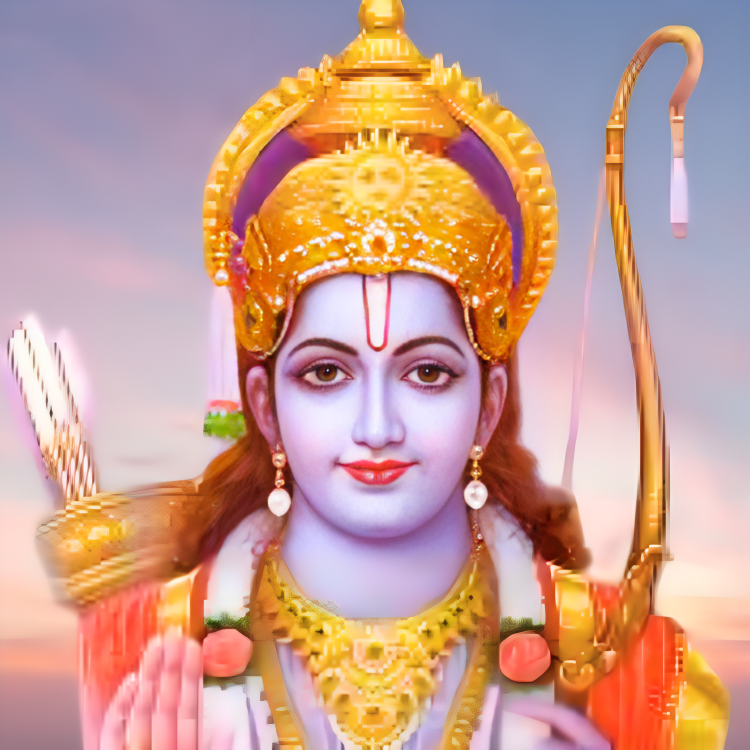
Vijaya Ekadashi 24 February 2025 January February Nityananda Trayodashi March April May June July August September October November December Mokshda Ekadashi Saphala Ekadashi Humberger Toggle Menu “Charity should only be given to propagate Krishna Consciousness all over the world. No matter small or big, Krishna sees your Heart, whether you want to serve him or not.” (A.C. Bhaktivedanta Swami Prabhupada) Join us in the contribution on this auspicious occasion of Ekadashi! DONATE Parana Time 25 Feb 2025 : 6:49 AM – 10:38 AM (North India) *Kindly check your local region time for Parana on Dwadashi Yudhishtra Maharaj said, “Oh Lord Shri Krishna, O glorious son of Vasudeva, please be merciful to me and describe the Ekadashi that occurs during the dark fortnight of the month of Phalguna (February-March).” Lord Shri Krishna replied, “Oh Yudhishthira, Oh king of kings, gladly I shall tell you about this great fast, known as Vijaya Ekadashi. Whoever observes it certainly achieves success in this life and the next. All the sins of one who fasts on this Ekadashi and hears its sublime glories are eradicated. Narada Muni once asked lord Brahma, who sits on a lotus flower about the Vijaya Ekadashi. Shri Narada said, “Oh best of all the demigods, kindly tell me the merit one can achieve by faithfully observing Vijaya Ekadashi.” Narada’s great father then replied, “My dear son, this oldest of fasting days is pure, and it nullifies all sins. I have never revealed this to anyone until today, but you can understand beyond any doubt that this Ekadashi bestows the result indicated by its name (Vijaya meaning Victory). When Lord Rama was exiled to the forest for fourteen years, He, the goddess Sita, and His divine brother Lakshmana stayed at Panchavati as mendicants. Mother Sita was then kidnapped by the demon Ravana, and Lord Rama seemingly became bewildered like an ordinary man by distress. While searching for His beloved consort, the Lord came upon the dying Jatayu and thereafter killed His enemy Kabandha. The great devotee-vulture Jatayu returned to Vaikuntha after telling Rama how His dear Sita had been abducted by Ravana.Later, Lord Rama and Sugriva, the king of the monkeys, became friends. Together they amassed a grand army of monkeys and bears and sent Hanumanji his minister to Shri Lanka, where he was able to see Janaki (Shrimati Sita devi) in an Ashoka grove garden. He delivered Lord Rama’s message and showed the ring proving his authenticity for rendering such great service to the Supreme Lord Shri Rama.With the help of Sugriva, Lord Rama proceeded toward Shri Lanka. Upon arriving at the shore of the ocean with the army of monkeys, He could understand that the water was uncommonly deep and hostile. Thus He said to Lakshmana, Oh son of Sumitra, how can We earn enough merit to be able to cross this vast ocean, the unfathomable abode of Varuna deva? I can see no easy way to cross it, teeming as it is with sharks and other ferocious aquatics.Lakshmana replied, Oh best of all beings, Oh origin of all the devas, Oh primal personality, the great sage Bakadalbhya lives on an island just four miles from here. Oh Raghava, he has seen many Brahmas come and go, so aged and wise is he. Let us go to him, take his darshan (audience) and ask him how We can safely reach our goal. So Rama and Lakshmana proceeded to the humble Ashram of the incomparable Bakadalbhya Muni. Approaching him,the two Lords paid Their respectful obeisances to him as if he were a second Vishnu. Bakadalbhya could immediately understand, however, that Shri Rama was actually the Supreme Personality of Godhead, who for His own reasons had appeared on the Earth and was enacting just like a human being. “Shri Rama”, said Bakadalbhya, “Oh best of the beings, why have You come to my lowly abode?” The Lord replied, “Oh great, twice born brahmin, I have come here to the ocean shore with My phalanx of monkey and bear warriors in order to cross the sea and conquer Lanka and its demon horde headed by Ravana. Oh greatest of sages, please be merciful unto Me and please tell Me how I can cross this vast ocean. That is why I have come to your Ashram today.” The sage said, “Oh Lord Shri Rama, I shall tell you of the most exalted of all fasts, observing which You will surely conquer Ravana and be eternally glorified. Kindly now listen with full attention.”“On the day before Ekadashi, fashion a water pot of gold or silver, or even copper. Even clay will do if these metals are unavailable. Fill the pot with pure water and then decorate it nicely with mango leaves. Cover it and place it near a holy altar upon a mound of seven grains (the seven grains are barley, wheat, rice, corn, chickpeas, kukani, and dahl or peas). Now take Your morning bath, decorate the water pot with flower garlands and sandalwood paste, and in the concave lid atop the pot place there the barley, pomegranate, and coconut. Now with great love and devotion worship the water pot Deity form and offer Him incense, sandalwood paste, flowers, a ghee lamp, and a plate of sumptuous foods. Remain there awake that night beside this sacred pot. On top of the lid filled with barley, etc., place a golden murthy of Lord Shri Narayana.When Ekadashi dawns, take Your morning bath and then decorate the water pot with fine sandalwood paste and garlands. Then worship the pot again with first class incense, lamps, sandalwood paste and flowers dipped in sandalwood paste, and then devoutly/devotedly place many kinds of cooked food, pomegranate, and coconut before the water pot. Then remain awake over night. When the Dwadashi dawns, take the waterpot to the bank of a holy river, or even to the shore of a small pond. After worshipping it again properly, Oh King of kings, offer it with all the aforementioned ingredients to a pure
Bhaimi Ekadashi
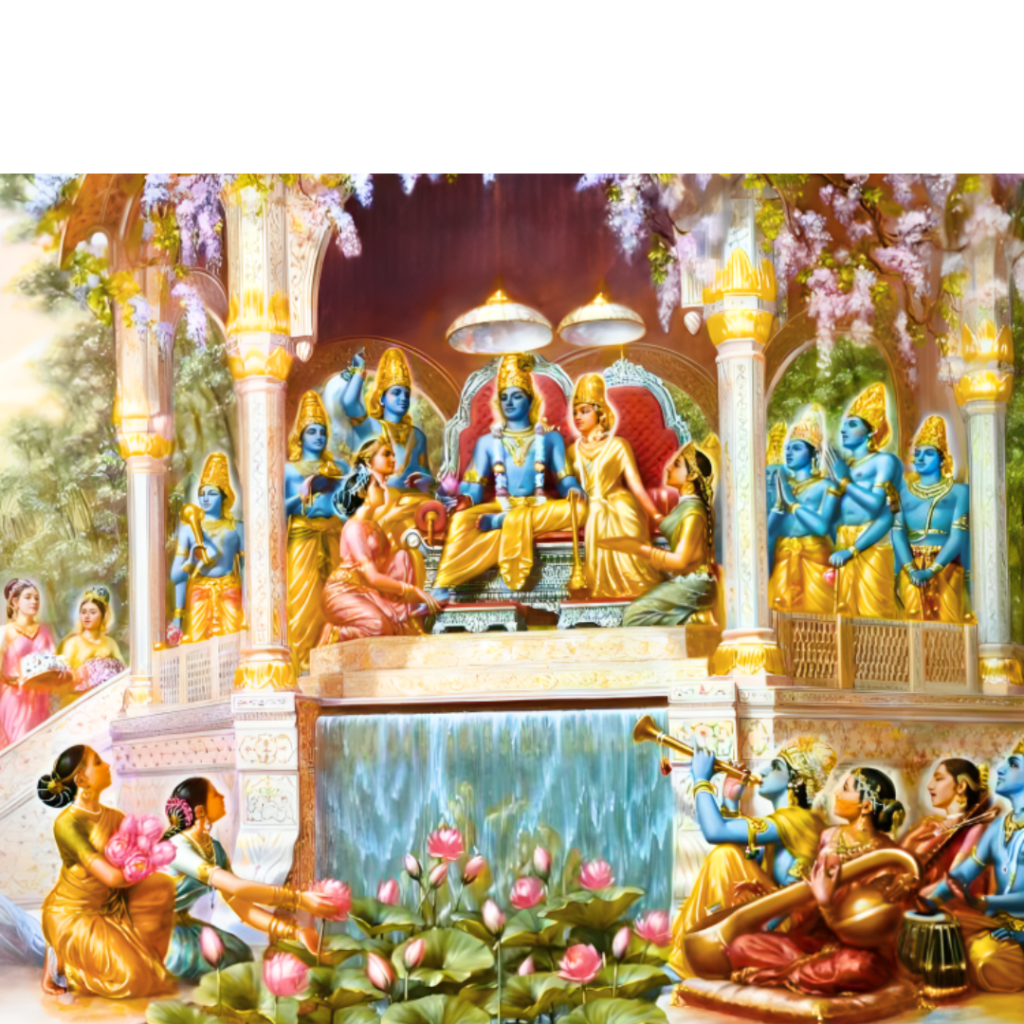
Bhaimi Ekadashi 8 February 2025 January February Nityananda Trayodashi March April May June July August September October November December Mokshda Ekadashi Saphala Ekadashi Humberger Toggle Menu “Charity should only be given to propagate Krishna Consciousness all over the world. No matter small or big, Krishna sees your Heart, whether you want to serve him or not.” (A.C. Bhaktivedanta Swami Prabhupada) Join us in the contribution on this auspicious occasion of Ekadashi! DONATE Parana Time 9 Feb 2025 : 7:03 AM – 10:44 AM (North India) *Kindly check your local region time for Parana on Dwadashi Yudhishthira Maharaj said, “Oh Lord of the lords, Shri Krishna, all glories unto You! Oh Master of the universe, You alone are the source of the four types of living entities those born from eggs, those born from perspiration, those born from seeds and those born from embryos. You alone are the root cause of all, Oh Lord, and therefore You are the creator, maintainer and destroyer. My Lord, You have so kindly explained to me the auspicious day known as Sat-tila Ekadashi, which occurs during the dark fortnight (krishna paksha) of the month of Magha (January – February). Now please explain to me the Ekadashi that occurs in the light fortnight (shukla or Gaura paksha) of this month. By what name is it known, and what is the process for observing it? Who is the presiding Deity that is to be worshipped on this sublime day, which is so very dear to You?”Lord Shri Krishna replied, “Oh Yudhishthira, I shall gladly tell you about the Ekadashi that occurs during the light half of this month of Magha. This Ekadashi obliterates all kinds of sinful reactions and demoniac influences that may be affecting the spirit soul. It is known as Jaya Ekadashi, and the fortunate soul who observes a fast on this sacred day is relieved of the great burden of ghostly existence. Thus there is no better Ekadashi than this, for it truly bestows freedom from birth and death. It is to be honoured very carefully and diligently. So you to listen to Me very attentively, Oh Pandava, as I explain a wonderful historic episode regarding this Ekadashi, an episode that I have already related in the Padma Purana. Long, long ago in the heavenly planets, Lord Indra ruled his celestial kingdom very nicely, and all the devas (demigods) living there were very happy and content. In Nandana Forest, which was beautifully graced with Parijata Flowers, Indra drank ambrosia whenever he liked and enjoyed the service of fifty million celestial maidens, the Apsaras, who danced in ecstasy for his pleasure. Many singers, led by Pushpadanta, sang in sweet voices beyond compare. Chitrasena, Indra’s chief musician was there in the company of his wife Malini and his handsome son Malyavan. An Apsara named Pushpavati became very much attracted to Malyavan; indeed Cupid’s sharp arrows pierced the core of her heart. Her beautiful body and complexion, along with the enchanting movements of her eyebrows, captivated Malayavan. Oh King, listen as I describe the splendid beauty of Pushpavati: She has incomparably graceful arms with which to embrace a man like a fine silken noose; her face resembles the Moon; her lotus eyes reached almost to her lovely ears, which were adorned with wonderful and costly ear-rings; her thin, ornamented neck looked like a conch, having three lines; her waist was very slender, the size of a fist; her hips were broad, and her thighs like the trunks of banana trees; her naturally beautiful features were complemented by gorgeous ornaments and garments; her breasts were highly raised emphasizing her prime of youth; and to look upon her feet was to behold newly grown red lotuses. Seeing Pushpavati in all her heavenly beauty, Malyavan was bewitched at once. They had come with the other performers to please Lord Indra by singing and dancing enchantingly, but because they had become so enamored of each other, pierced through the heart by the arrows of Cupid, lust personified, they were utterly unable to sing or dance properly before the lord and master of the heavenly realms. Their pronunciation was wrong and their rhythm careless. Lord Indra understood the source of the errors at once. Offended at the discord in the musical performance, he became very angry and screamed, “You useless fools! You pretend to sing for me while in a stupour of infatuation with each other! You are mocking me! I curse you both to suffer henceforth as pisachas (hobgoblins). As husband and wife, go to the earthly regions and reap the reactions of your offenses.” Struck dumb by these harsh words, Malyavan and Pushpavati at once became morose and fell from the beautiful Nandana Forest in the kingdom of heaven to a Himalayan peak here on planet Earth. Immeasurably distressed, and their celestial intelligence vastly diminished by the effects of lord Indra’s fierce curse, they lost their sense of taste and smell, and even their sense of touch. It was so cold and miserable high on the Himalayan wastes of snow and ice that they could not even enjoy the oblivion of sleep. Roaming aimlessly hither and thither in those harsh altitudes, Malyavan and Pushpavati suffered more and more, from one moment to the next. Even though they were situated in a cave, because of the snowfall and cold their teeth chattered ceaselessly, and their hair stood on end because of their fright and bewilderment. In this utterly desperate situation, Malyavan said to Pushpavati, “What abominable sins did we commit to have to suffer in these pisacha bodies, in this impossible environment? This is absolutely hellish! Though hell is very ferocious, the suffering we are undergoing here is even more abominable. Therefore it is abundantly clear that one should never commit sins”.And so the forlorn lovers trudged onward in the snow and ice. By their great good fortune, however, it so happened that very day was the all auspicious Jaya (Bhaimi) Ekadashi, the Ekadashi of the light fortnight of
Sat-Tila Ekadashi – Copy
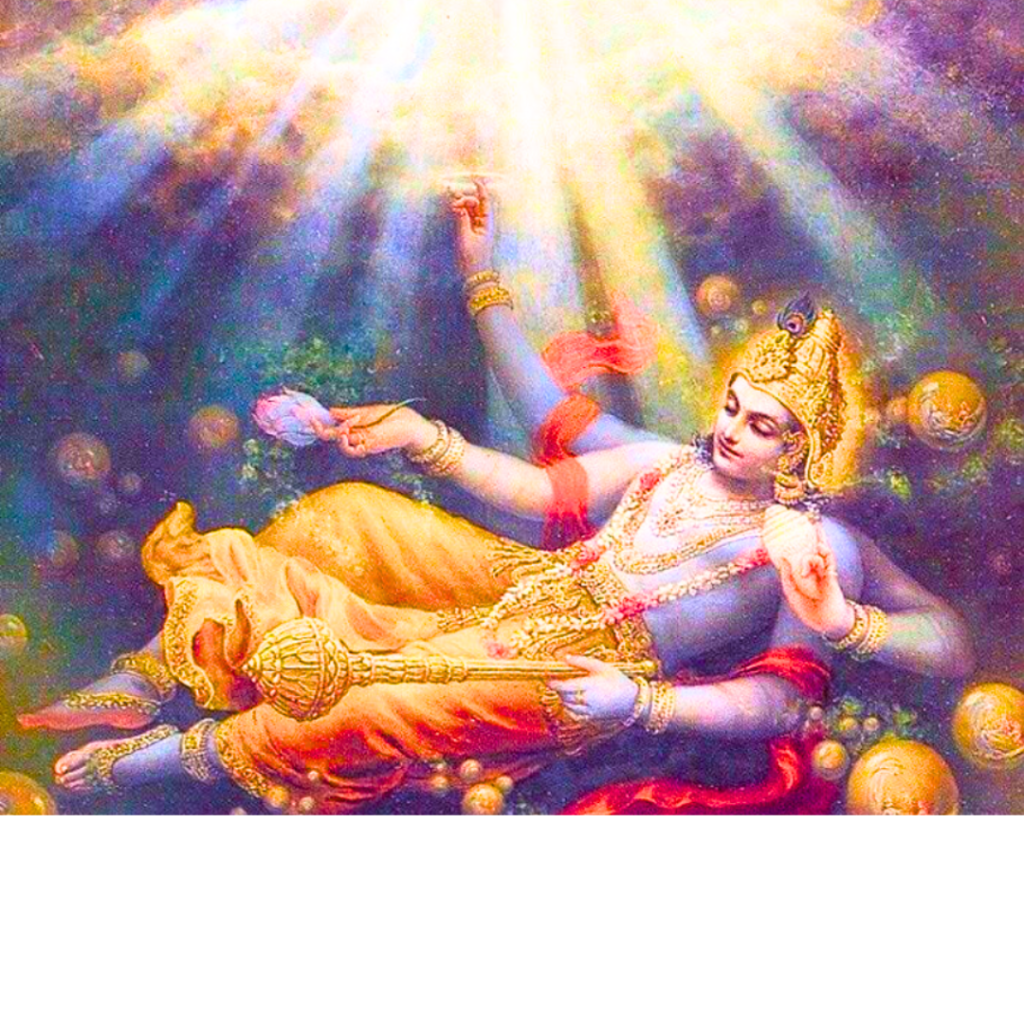
Sat-tila Ekadashi 25 January 2025 January February Nityananda Trayodashi March April May June July August September October November December Mokshda Ekadashi Saphala Ekadashi Humberger Toggle Menu “Charity should only be given to propagate Krishna Consciousness all over the world. No matter small or big, Krishna sees your Heart, whether you want to serve him or not.” (A.C. Bhaktivedanta Swami Prabhupada) Join us in the contribution on this auspicious occasion of Ekadashi! DONATE Parana Time 26 Jan 2025 : 7:11 AM – 10:45 AM (North India) *Kindly check your local region time for Parana on Dwadashi Sat-Tila Ekadashi (Trisprisha Ekadashi) Shri Dalbhya Rishi said to Palastya Muni, “When the spirit soul comes in contact with the material energy, he immediately begins to perform sinful activities, such as stealing, killing, and illicit sex. He may even perform many other terrible deeds, such as killing a brahmin. Oh purest of personalities, please tell me how these unfortunate souls may escape the punishment of being sent to hellish regions of creation. Kindly inform me how, by giving even a little in charity, one may be easily be released from the reactions of his sins.” Pulastya Muni replied, “Oh fortunate one, you have asked me an important and confidential question, which not even Brahma, Vishnu, Shiva or Indra has ever asked. Please listen very carefully to my answer. With the arrival of the month of Magh (January – February), one should bathe, carefully control his senses by giving up lust, anger, pride, jealousy, faultfinding, and greed, and meditate on the Supreme Personality of Godhead Lord Shri Krishna. One should then gather up some cow dung before it touches the ground and after mixing it with sesame seeds and cotton, form 108 balls. This should be done on the day when the constellation of Purva-ashadha nakshatra arrives. Then one should follow the rules and regulations of Shri Ekadashi, which I shall now explain to you.After bathing, the person who intends to observe Ekadashi should worship the Supreme Lord. While praying to Lord Shri Krishna by chanting His holy name, he should promise to observe the Ekadashi fast. He should remain awake overnight and perform a homa (fire sacrifice). Then the devotee should perform an Arati ceremony for the pleasure of the Lord – Who holds a conch, disk, club, and so on in His hands – offering Him sandalwood paste to his feet, incense, camphor, a bright ghee lamp, and delicious food preparations. Next the devotee should offer the 108 balls of cow dung, sesame seeds, and cotton wool into the sacred fire whilst chanting such holy names of the Lord as Purusha sukta, and other names. Throughout the whole day and night he should also observe the standard Ekadashi vrata (fast, which in this case is a fast from all kinds of grains and beans). On this occasion one should offer the Lord – pumpkin, coconut, and guava. If these items are unavailable, betel nut may be substituted. The devotee should pray to Lord Shri Janardana, the benefactor of all living beings, in this way: “Oh Lord Shri Krishna, You are the most merciful Personality of Godhead and the giver of liberation to all fallen souls. Oh Lord, we have fallen into the ocean of material existence. Please be kind to us. Oh lotus-eyed divinity, please accept our most humble, affectionate and respectful obeisances. Oh protector of the entire world, we offer You our humble respects again and again. Oh Supreme Spirit, Oh Supreme One, Oh source of all our forefathers, may You and Your eternal consort, Shrimati Laxmi-devi, please accept these humble offerings.”The devotee should then try to please a qualified brahmin with a warm welcome, a pot full of water (purna kumbha), an umbrella, a pair of shoes, and clothes (cloth – dhoti, and anga vastra), requesting him at the same time to bestow his blessings, by which one may develop unalloyed love for Lord Shri Krishna. According to one’s ability, one may also donate a black cow to such a brahmin, particularly to one who is very well versed in all the injunctions of the Vedic scriptures. One should also offer him a pot full of sesame seeds. Oh exalted Dalbhya Muni, black sesame seeds are especially suitable for formal worship and fire sacrifices while white or brown ones are meant to be eaten by a qualified brahmin. One who can arrange to give both kinds of sesame seeds (black and white or brown) especially on this Sat-tila Ekadashi day will be promoted to at least the heavenly planets after leaving this present body, for as many thousands of years as the number of seeds that would be produced if the seeds he donated were sown in the ground and grew into mature, seed bearing plants.On this Ekadashi a faithful person should: 1) bathe in the water mixed with sesame seeds, 2) rub sesame seed paste on his body, 3) offer sesame seeds into the fire in sacrifice, 4) eat sesame seeds, 5) give sesame seeds away in charity, 6) accept charitable gifts of sesame seeds.These are the six (sat) ways in which sesame seeds (tila) are utilised for spiritual purification on this Ekadashi. Therefore it is called Sat-tila Ekadashi. The great Devarishi Narad Muni once asked the Supreme Personality of Godhead, Shri Krishna, “Oh mighty armed Lord, Oh! You who are so affectionate to Your loving devotees, please accept my most humble obeisances. Oh Yadava, kindly tell me the result one obtains by observing Sat-tila Ekadashi.” Lord Shri Krishna replied, “Oh best of the twice born brahmins, I shall narrate to you an account of an incident I personally witnessed. Long ago on earth there lived an old female brahmini who worshipped Me every day with controlled senses. She very faithfully observed many a fast, especially on special days honouring Me (My various appearance days Janmasthami, Rama-navami, Vaman Dwadashi, Nrisimha Chaturdasi, Varaha Dwadashi, Gaura Purnima, etc.) and served Me with full devotion, devoid of any personal motive. Her rigorous fasting
Putrada Ekadashi
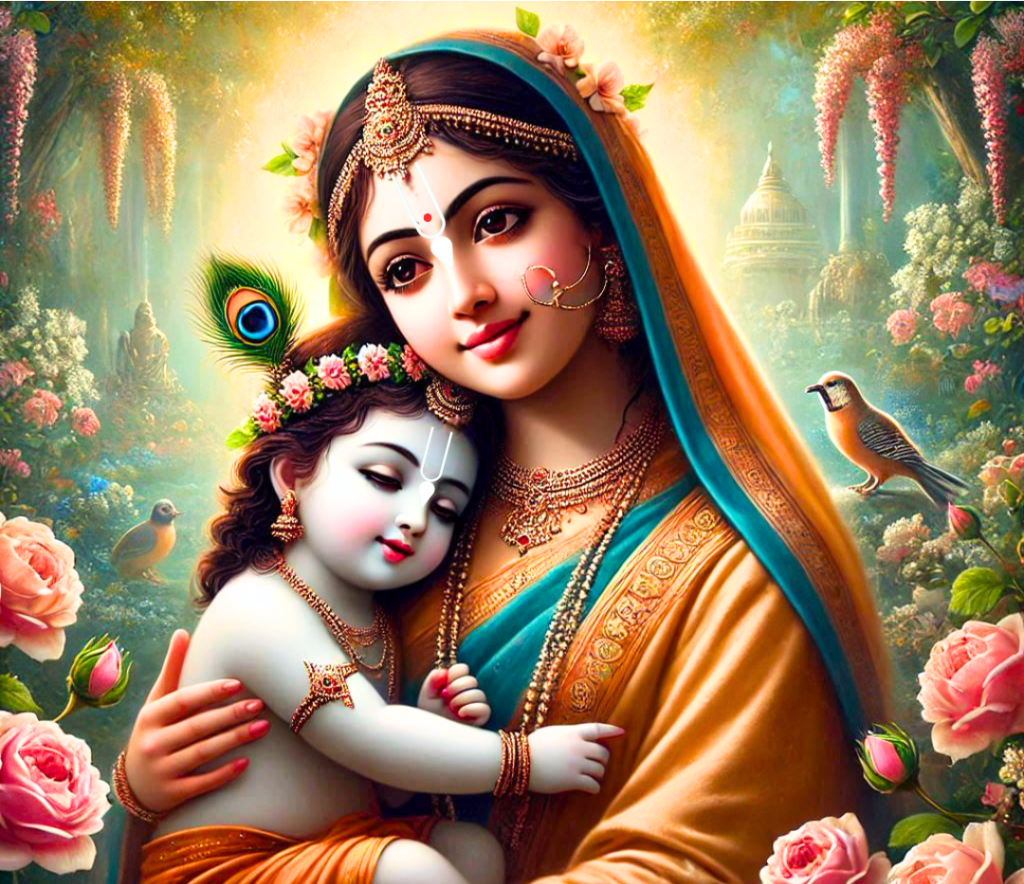
Putrada Ekadashi 10 January 2025 January February Nityananda Trayodashi March April May June July August September October November December Mokshda Ekadashi Saphala Ekadashi Humberger Toggle Menu “Charity should only be given to propagate Krishna Consciousness all over the world. No matter small or big, Krishna sees your Heart, whether you want to serve him or not.” (A.C. Bhaktivedanta Swami Prabhupada) Join us in the contribution on this auspicious occasion of Ekadashi! DONATE Parana Time 10 Jan 2025 : 7:14 AM – 8:24 AM (North India) *Kindly check your local region time for Parana on Dwadashi Putrada Ekadashi (Pausha-Shukla Ekadashi) The pious and saintly Yudhishthira Maharaj said, “Oh Lord, You have so nicely explained to us the wonderful glories of the Saphala Ekadashi, which occurs during the dark fortnight (Krishna paksha) of the month of Pausha (December – January). Now please be merciful to me and explain to me the details of the Ekadashi that occurs in the light fortnight (Shukla or Gaura paksha) of this month. What is its name, and what Deity is to be worshiped on that sacred day? Oh Purushottama, Oh Hrishikesha, please also tell me how You can be pleased on this day?” Lord Shri Krishna then replied, “Oh saintly king, for the benefit of all humanity I shall now tell you how to observe fasting on the Pausha-shukla Ekadashi.As previously explained, everyone should observe the rules and regulations of the Ekadashi vrata, to the very best of their ability. This injunction also applies to the Ekadashi named Putrada, which destroys all sins and elevates one to the spiritual abode. The Supreme Personality of Godhead Shri Narayana, the original personality, is the worshipable Deity of the Ekadashi, and for His faithful devotees He happily fulfills all desires and awards full perfection.Thus among all the animate and inanimate beings in the three worlds(lower, middle and higher planetary systems), there is no better personality than Lord Narayana. Oh King, now I shall narrate to you the history of Putrada Ekadashi, which removes all kinds of sins and makes one famous and learned. There was once a kingdom named Bhadraavati, which was ruled by King Suketumaan. His queen was the famous Shaibyaa. Because he had no son, he spent a long time in anxiety, thinking, “If I have no son, who will carry on my dynasty?” In this way the king meditated in a religious attitude for a very long time, thinking, “Where should I go? What should Ido? How can I get a pious son (putra)?” In this way King Suketumaan could find no happiness any where in his kingdom, even in his own palace, and soon he was spending more and more time inside his wife’s palace, gloomily thinking only of how he could get a son. Thus both King Suketumaan and Queen Shaibyaa were in great distress. Even when they offered tarpana (oblations of water to their forefathers), their mutual misery made them think that it was as undrinkable as boiling water. They thus thought that they would have no descendants to offer tarpana to them when they died and thus become lost souls (ghosts). The king and queen were especially upset to learn that their forefathers were worried that soon there would be no one to offer them tarpana also.After learning of their forefather’s unhappiness, the king and queen became more and more miserable, and neither ministers, nor friends, nor even loved ones could cheer them up. To the king, his elephants and horses and infantry were no solace, and at last he became practically inert and helpless.The king thought to himself, “It is said that without a son, marriage is wasted. Indeed, for a family man with no son,both his heart and his splendid house remain vacant and miserable.Bereft of a son, a man cannot liquidate the debts that he owes his forefathers, the demigods (devas) and to other human beings. Therefore every married man should endeavor to beget a son; thus he will become famous within this world and at last attain the auspicious celestial realms. A son is proof of the pious activities a man performed in his past one hundred lifetimes, and such a person achieves a long duration of life in this world, along with good health and great wealth. Possessing sons and grandsons in this lifetime proves that one has worshiped Lord Vishnu, the Supreme Personality of Godhead, in the past. The great blessing of sons, wealth, and sharp intelligence can be achieved only by worshiping the Supreme Lord, Shri Krishna. That is my opinion.”Thinking thus,the king had no peace. He remained in anxiety day and night, from morning to evening, and from the time he lay down to sleep at night until the sun rose in the morning, his dreams were equally full of great anxiety. Suffering such constant anxiety and apprehension, King Suketumaan decided to end his misery by committing suicide. But he realized that suicide throws a person into hellish conditions of rebirth, and so he abandoned that idea. Seeing that he was gradually destroying himself by his all consuming anxiety over the lack of a son, the king at last mounted his horse and left for the dense forest alone. No one, not even the priests and brahmins of the palace, knew where he had gone.In that forest, which was filled with deer and birds and other animals, King Suketumaan wandered aimlessly, noting all the different kinds of trees and shrubs, such as the fig, bel fruit, date palm, jackfruit,bakula, saptaparnaa, tinduka, and tilaka, as well as the shala, taala, tamaala, saralaa, hingotaa, arjuna, labheraa, bahedaa, sallaki, karondaa, patala, khaira, shaka and palaasha trees. All were beautifully decorated with fruits and flowers. He saw deer,tigers, wild boar, lions, monkeys, snakes, huge bull elephants in arut, cow elephants with their calves, and four-tusked elephants with their mates close by. There were cows, jackals, rabbits, leopards, and hippopotamuses. Beholding all these animals accompanied by their mates and offspring, the king remembered his own menagerie, especially his
Vrindavan
In the sacred month of Damodar, we had the privilege of organizing a spiritual event in Muzaffarnagar, featuring Kirtan, Katha, and divine teachings from the Bhagavad Gita. This initiative aimed to inspire and guide future generations on the path of Dharma. The event witnessed an overwhelming response, with more than thousands of participants immersing themselves in the profound wisdom and spiritual melodies. Together, we celebrated the eternal teachings of the Gita and experienced a collective sense of devotion and community.
Nityananda Trayodashi
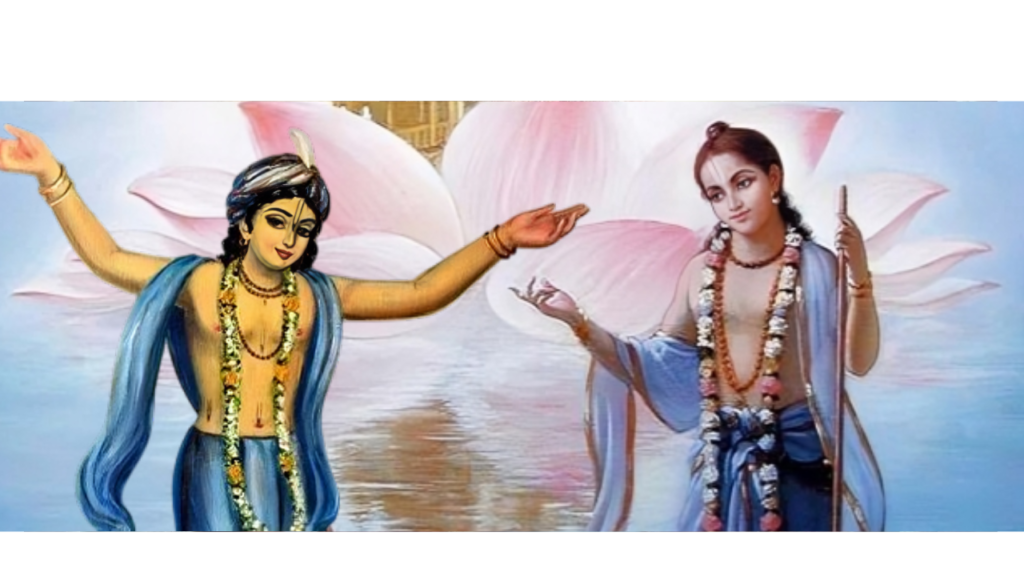
Nityananda Trayodashi 10 February 2025 January February Nityananda Trayodashi March April May June July August September October November December Mokshda Ekadashi Saphala Ekadashi Humberger Toggle Menu One who offers the Deity gifts of land, markets, cities and villages so that the regular daily worship and special festivals of the Deity may go on continually will achieve opulence equal to My own. (Shrimad Bhagvatam 11.27.51) Join us in the contribution on this auspicious occasion of Nityananda Trayodashi! DONATE Fasting till Noon (12 PM) on 10th Feb, 2025 Lord Nityananda is the eternal associate of Chaitanya Mahaprabhu, the Supreme Personality of Godhead. Rarely is the name Nimai (Chaitanya Mahaprabhu) taken without that of Nitai (Lord Nityananda). Mahaprabhu cannot be approached or understood without the mercy of Nityananda Prabhu, who is the cardinal guru of all the universes and serves as an intermediary between Mahaprabhu and His devotees. He is the Lord’s active principle in both creation and lila. He is the second body of the Lord, manifesting as Balaram to Sri Krishna, Lakshman to Sri Ram and Nityananda Prabhu to Caitanya Mahaprabhu. All other forms and expansions of the Lord emanate from this second body. Nityananda Prabhu is thus the source of Sankarshan, all the Vishu’s, and Ananta Sesa. As Vishnu tattva He and Advaita Acharya are worshipped in the same category as Caitanya Mahaprabhu. In the manifested earthly lila, Nityananda Prabhu is senior to Chaitanya Mahaprabhu by more than a decade. Having the whitish complexion of like Lord Balarama. His garments resemble a cluster of blue lotus flowers and His effulgence is said to surpass the grandeur of a rising moon at sunset. He has a deep melodious voice, constant singing the glories of Sri Krishna and carries a red stick with benedictions for the devotees, but feared by the demoniac. He has the carefree mood of a wild avadhuta, so absorbed is He in the love of Godhead, and no one knows what He will do next. Nityananda Prabhu was born in Ekachakra, a small village in present West Bengal, around the year 1474. His birth site is commemorated by a temple named Garbhasva and is visited by throngs of pilgrims today. His father, Hadai Ojha and mother Padmavati, were pious Brahmans originally from Mithila. Nityananda Prabhu was born on the auspicious thirteenth day of the bright fortnight of the month of Maga. As a child, Nitai (as Nityananda Prabhu was called), loved to enact the pastimes of Sri Krishna or Lord Rama. He did this so authoritatively and with such rapture, that the entire village would be immersed in the love of Godhead. Nitai’s favorite part was that of Lakshman, and He enacted it with so many apparently authentic scenes not described in the Ramayana, that people would wonder if He was making it up or actually relishing His own pastimes. The village of Ekachakra was completely absorbed in the love of little Nitai, where He spend the first 12 years of his earthly life. In the 13th year, a travelling sannyasi, said to be the famous LakshmipatiTirtha, enchanted by Nitai”s devotion and service, requested Nitai from his parents, as a travelling companion. His parents, bound by Vedic culture, could not refuse the request of a guest and reluctantly parted with Nitai. However, devastated by the separation with Nitai, thatHadaiPandit soon gave up his life. Nitai traveled with LakshmipatiTirtha for about 20 years, during which He visited all the holy places in the country, reminiscent of the manner that Balarama traveled while the battle at Kurukshetra raged on. Nitai is said to be later on initiated by LakshmipatiTirtha. He also associated with another of LakshmipatiTirtha’s famous disciple, Madhavendra Puri, who although his godbrother, was revered by Nitai was as a spiritual master. Madhavendra Puri is famous for establishing the sweet truth of Madhurya-rasa which later become an integral part of GaudiyaVaishnavism. Among the other disciples of Madhavendra Puri is Advaita Acharya, and Isavara Puri (the spiritual master of Caitanya Mahaprabhu). Nityananda Prabhu met Caitanya Mahaprabhu in 1506, when He was 32 years old and the Lord 20 years. It is said that when Nityananda Prabhu reached the land of Nadia, He hid in the house of Nandan Acharya, to heighten the ecstasy of meeting through separation. Caitanya Mahaprabhu aware of the arrival of His eternal associate dispatched Haridas Thakur and SrivasPandit to search out Nitai, but they failed. Finally unable to bear the separation any longer, Caitanya Mahaprabhu Himself went directly to Nityananda Prabhu and the ecstasy of the meeting was so transcendental that every one witnessing it were awed by the sublime experience. A temple called Sri Gaura-Nityananda commemorates this meeting place in Nadia. Nityananda Prabhu in His role as the original spiritual master was instrumental in spreading the yuga dharma of sankritana all over the Gaudia desh (Bengal, Orrisa). His mercy knew no bounds, and people fortunate to come in contact with Him were inundated with the love of Godhead. It was by His mercy that Raghunatha dasa, one of the six Goswamis started the famous DandaMahotsava festival of Panihatti, a tradition that continues to this day, and was thus able to serve Caitanya Mahaprabhu. He extended His mercy to even fallen souls like Jagai and Madhai, delivering them from the sinful lives and protecting them from the wrath of even Caitanya Mahaprabhu. Indeed His mercy knew no bounds, and fortunate were the people who tasted the nectar of His instructions. When Nityananda Prabhu returned to Bengal at the request of Chaitanya Mahaprabhu, His decided to abandon His avadhuta status and become a grahastha (householder). He married Jahnavadevi and Vasudha, the two daughters of SuryadasaSarakhel, who the brother of GauridasaPandit (an intimate associate of Chaitanya Mahaprabhu and the spiritual master of the famous ShyamanandaPandit). Nityananda Prabhu had a son (Virchandara) and a daughter (Gangadevi) from Vasudha. Soon after Vasudha passed away and Jahanvadevi looked after the children. She later initiated Virchandra, and also became an instructing spiritual master to the likes of ShyamanandaPandit, ShrivasaPandit and Narottama
Mokshda Ekadashi
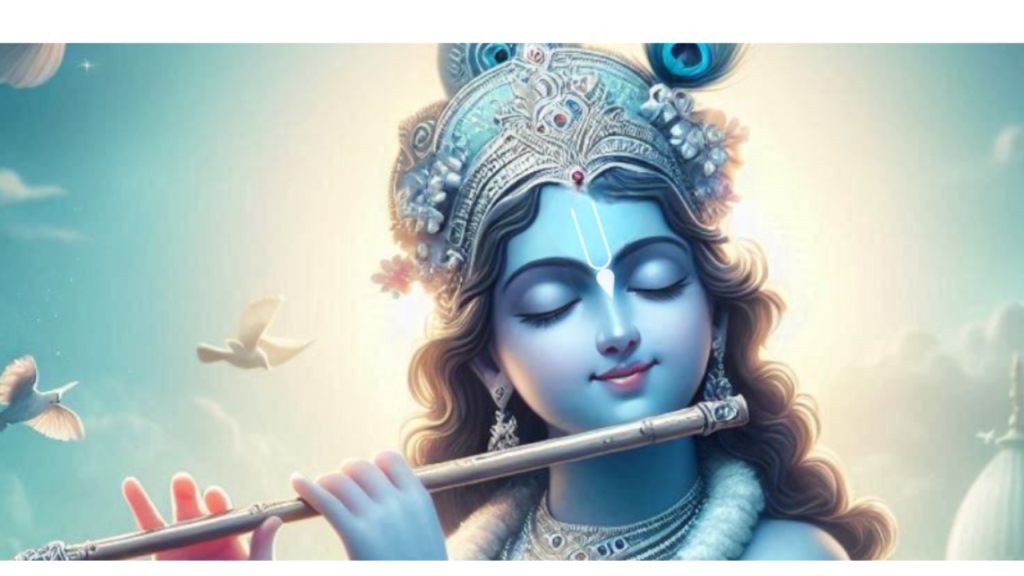
Mokshda Ekadashi 11 December 2024 January February Nityananda Trayodashi March April May June July August September October November December Mokshda Ekadashi Saphala Ekadashi Humberger Toggle Menu One who offers the Deity gifts of land, markets, cities and villages so that the regular daily worship and special festivals of the Deity may go on continually will achieve opulence equal to My own. (Shrimad Bhagvatam 11.27.51) Join us in the contribution on this auspicious occasion of Ekadashi! DONATE Parana Time 12 Dec 2024 : 7:04 AM – 10:31 AM (North India) *Kindly check your local region time for Parana on Dwadashi The Ancient History of Mokshada Ekadashi from Brahmanda Purana: Yudhishthira Maharaj said, “O Vishnu, master of all, O delight of the three worlds, O Lord of the entire Universe, O creator of the world, O oldest personality, O best of all beings, I offer my most respectful obeisances unto You. “O Lord of lords, for the benefit of all living entities, kindly answer some questions that I have. What is the name of the Ekadashi that occurs during the light fortnight of the month of Margashirsha (November-December) and removes all sins? How does one observe it properly, and which Deity is worshipped on that holiest of days? O my Lord please explain this to me in full.” Lord Shri Krishna replied, “O dear Yudhishthira, your enquiry is very auspicious in itself and will bring you fame. Just as I previously explained to you about the dearest Utpannaa Maha-Dwadashi – which occurs during the dark part of the month of Margashirsha, which is the day when Ekadashi-devi appeared from My body to kill the demon Mura, and which benefits everything animate and inanimate in the three worlds – so I shall now relate to you regarding this Ekadashi that occurs during the light part of the month of Margashirsha. This Ekadashi is famous as Mokshadaa because it purifies the faithful devotee of all sinful reactions and bestows liberation upon him. The worshipable Deity of this all auspicious day is Lord Damodara. With full attention one should worship Him with incense, a ghee lamp, fragrant flowers, and Tulsi manjaris (buds).O best of saintly kings, please listen as I narrate to you the ancient and auspicious history of this wonderful Ekadashi. Simply by hearing this history one can attain the merit earned by performing a horse sacrifice. By the influence of this merit, one’s forefathers, mothers, sons, and other relatives who have gone to hell can turn around and go to the heavenly kingdom. For this reason alone, O king, you should listen with rapt attention to this narration.There once was a beautiful city named Champaka-nagar, which was decorated with devoted Vaishnavas. There the best of saintly kings Maharaj Vaikhaanasa, ruled over his subjects as if they were his very own dear sons and daughters. The brahmins in that capital city were all expert in four kinds of Vedik knowledge. The king, while ruling properly, had a dream one night in which his father was seen to be suffering the pangs of hellish torture in one of the hellish planets ruled over by the Yamaraj. The king was overwhelmed with compassion for his father and shed tears. The next morning, Maharaj Vaikhaanasa described what he had seen in his dream to his council of twice born learned brahmins. “O brahmanas,” the king addressed them, “in a dream last night I saw my father suffering on a hellish planet. He was crying out in anguish, “O son, please deliver me from this torment of this hellish condition!” Now I have no peace in my mind, and even this beautiful kingdom has become unbearable to me. Not even my horses, elephants, and chariots and my vast wealth in my treasury that formerly brought so much pleasure, gives me no pleasure at all. Everything, O best of the brahmins, even my own wife and sons, have become a source of unhappiness since I beheld my father suffering the tortures of that hellish condition so. Where can I go, and what can I do, O brahmins, to alleviate this misery? My body is burning with fear and sorrow ! Please tell me what kind of charity, what mode of fasting, what austerity, or what deep meditation, and in service upon which Deity I may have to perform to deliver my father from that agony and bestow upon liberation upon my forefathers. O best among the brahmins, what is the use of one’s being a powerful son if one’s father must suffer on a hellish planet? Truly, such a son’s life is utterly useless, to him and to his forefathers.” The twice born brahmins replied, “O king, in the mountainous forest not far from here is the ashram where a great saint Parvata Muni resides. Please go to him, for he is tri-kala-jnani (he knows the past, the present, and the future of everything) and can surely help you in your gaining relief from your misery.”Upon hearing this advise, the distressed king immediately set out on a journey to the ashram of the famous sage Parvata Muni. The ashram was indeed very big and housed many learned sages expert in chanting the sacred hymns of the four Vedas (Rg, Yajur, Sama, and Arthava). Approaching the holy ashram, the king beheld Parvata Muni seated among the assembly of sages adorned with hundreds of tilaks (from all the authorised sampradayas) like another Brahmaa or Vyaas. “Maharaj Vaikhaanasa offered his humble obeisances to the muni, bowing his head and then prostrating his entire body before him. After the king had seated himself among the assembly Parvata Muni asked him about the welfare of the seven limbs of his extensive kingdom (his ministers, his treasury, his military forces, his allies, the brahmins, the sacrificial offerings performed, and the needs of his subjects). The muni also asked him if his kingdom was free of troubles and whether everyone was peaceful, happy and satisfied. To these enquiries the king replied, “By your mercy O
Saphala Ekadashi
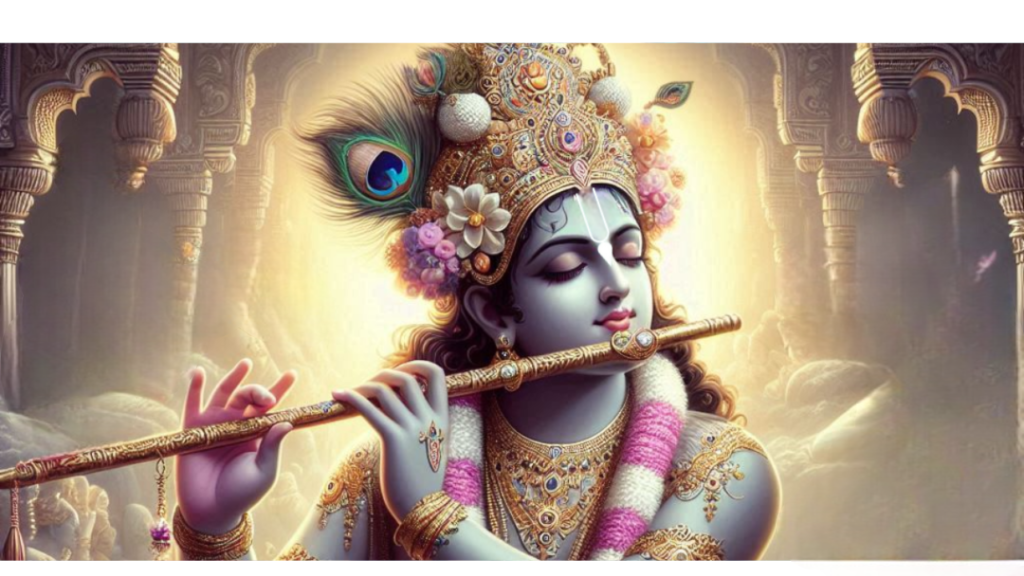
Saphala Ekadashi 26 December 2024 January February Nityananda Trayodashi March April May June July August September October November December Mokshda Ekadashi Saphala Ekadashi Humberger Toggle Menu One who offers the Deity gifts of land, markets, cities and villages so that the regular daily worship and special festivals of the Deity may go on continually will achieve opulence equal to My own. (Shrimad Bhagvatam 11.27.51) Join us in the contribution on this auspicious occasion of Ekadashi! DONATE Parana Time 27 Dec 2024 : 7:12 AM – 10:38 AM (North India) *Kindly check your local region time for Parana on Dwadashi Yudhishthira Maharaj said, “O my Dear Lord Shri Krishna, what is the name of that Ekadashi that occurs during the dark fortnight of the month of Pausha (December-January)? How is it observed, and which Deity is to be worshipped on that sacred day? Please narrate these details to me fully, so that I may understand Oh Janardana.” The Supreme Personality of Godhead Shri Krishna then replied, “O best of kings, because you desire to hear, I shall fully describe to you the glories of the Pausha-krishna Ekadashi. “I do not become as pleased by sacrifice or charity as I do by My devotee’s observance of a full fast on Ekadashi. To the best of one’s ability, therefore, one should fast on Ekadashi, the day of Lord Hari. O Yudhishthira, I urge you to hear with undivided intelligence the glories of Pausha-krishna Ekadashi, which falls on a Dwadashi. As I explained previously, one should not differentiate among the many Ekadashis. O king, to benefit humanity at large I shall now describe to you the process of observing Pausha-krishna Ekadashi. Pausha-krishna Ekadashi is also known as Saphalaa Ekadashi. On this sacred day one should worship Lord Narayana, for He is its ruling Deity. One should do so by follow the previously described method of fasting. Just as among snakes Shesha-naga is the best, and among birds Garuda is the best, among sacrifices the Ashvamedha-yajna is the best, among rivers Mother Ganges is the best, among gods Lord Vishnu is best, and among two-legged beings the brahmins are the best, so among all fasting days Ekadashi is by far the best. O foremost of kings who took your birth in the Bharata dynasty, whoever strictly observes Ekadashi becomes very dear to Me and indeed worshipable by Me in every way. Now please listen as I describe the process for observing Saphalaa Ekadashi. On Saphalaa Ekadashi My devotee should worship Me by offering Me fresh fruits according to time, place and circumstance, and by meditating on Me as the all-auspicious Supreme Personality of Godhead. He should offer Me jaambira fruit, pomegranate, betal nuts and leaves, coconut, guava, varieties of nuts, cloves, mangoes, and different kinds of aromatic spices. He should also offer Me incense and bright ghee lamps, for such an offering of lamps on Saphalaa Ekadashi is especially glorious. The devotee should try to stay awake the Ekadashi night. Now please hear with undivided attention as I tell you how much merit one gets if he fasts and remains awake throughout the entire night singing and chanting the glories of Narayana. O best of kings, there is no sacrifice or pilgrimage that yields merit that is equal to or better than the merit one gains by fasting on this Saphala Ekadashi. Such fasting – particularly if one can remain awake and alert the entire night long – bestows the same merit upon the faithful devotee as the performance of austerity for five thousand earthly years. O lion among kings, please hear from Me the glorious history that made this Divine Ekadashi famous. Once there was a City called Champaavati, which was ruled by the saintly King Mahishmata. He had four sons, the eldest of whom, Lumpaka, always engaged in all manner of very sinful activities – illicit sexual encounters with the wives of others, gambling, and continual association with known prostitutes. His evil deeds gradually reduced the wealth of his father, King Mahishmata. Lumpaka also became very critical of the numerous devas, the empowered universal attendants of the Lord, as well as toward the brahmins, and every day he would go out of his way to blaspheme the Vaishnavas. At last King Maahishmata, seeing the unrepentant brazen fallen condition of his son, exiled him to the forest. Out of fear of the king, even compassionate relatives didn’t come to Lumpaka’s defense, so angry was the king toward his son, and so sinful was this Lumpaka. Bewildered in his exile, the fallen and rejected Lumpaka thought to himself, “My father has sent me away, and even my kinsmen do not raise but a finger in objection. What am I to do now?” He schemed sinfully and thought, “I shall sneak back to the city under cover of darkness and plunder its wealth. During the day I shall stay in the forest, and as night returns, so shall I to the city.” So thinking, the sinful Lumpaka entered the darkness of the forest. He killed many animals by day, and by night he stole all manner of valuable items from the city. The city-dwelling folk apprehended him several times, but out of fear of the king they left him alone. They thought to themselves that it must have been the accumulated sins of Lumpaka’s previous births that had forced him to act in such a way that he lost his royal facilities and became to act so sinfully like a common selfish thief. Though a meat-eater, Lumpaka would also eat fruits every day. He resided under an old banyan tree that unknown to him happened to be very dear to Lord Vasudeva. Indeed, many worshipped as the demi-god (representative departmental head) of all the trees in the forest. In due course of time, while Lumpaka was doing so many sinful and condemnable activities, the Saphalaa Ekadashi arrived. On the eve of the Ekadashi (Dasami) Lumpaka

